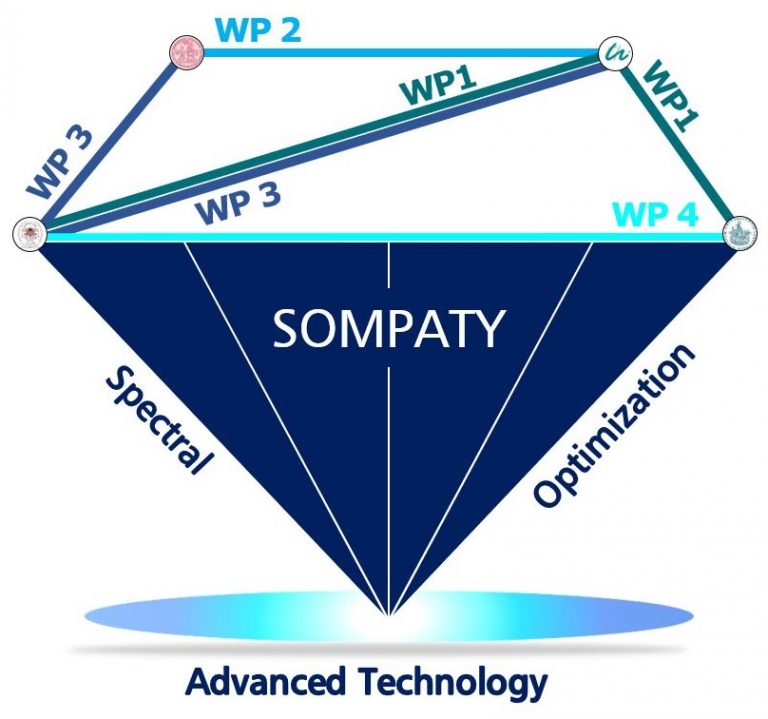Menu
Structure of the project
Structure of the project

- WP 1 Ilmenau: #Alm#Baku
- WP 2 Prague: #Alm#Tash
- WP 3 Kyiv: #Baku#Tash
- WP 4 Lübeck: #Alm#Baku
- WP 5 Kyiv: Dissemination, exploitation and outreach
- WP 6 Ilmenau: Project management
Objectives
Objectives
The collaborative research is organized within the Work Packages (WPs).
Four research and training WPs
- Numerical schemes for indefinite Sturm-Liouville problems & spectral analysis of signals (WP 1),
- Linear & nonlinear models of branched structures (WP 2),
- Spectral theory of singular perturbations and inverse problems (WP 3),
- Approximation theory & theory of function spaces (WP 4)),
one WP Dissemination, exploitation and outreach (WP 5)
and one for Project management (WP 6).
Numerical schemes for indefinite Sturm–Liouville problems and spectral analysis of signals
- Numerical schemes for the non-real spectrum of indefinite Sturm–Liouville operators
- PT-symmetric operators on complex contours
- Perturbation theory for differential algebraic equations
- Re-design of integrated circuits
Numerical schemes for indefinite Sturm–Liouville problems and spectral analysis of signals
- Numerical schemes for the non-real spectrum of indefinite Sturm–Liouville operators
- PT-symmetric operators on complex contours
- Perturbation theory for differential algebraic equations
- Re-design of integrated circuits
Spectral theory of singular perturbations and inverse problems
- Spectral analysis of differential operators with distribution coefficients.
- Solvability of ill-posed problems of normal and generalized normal type for non-local boundary value problems
- Spectrum of elliptic differential operators with nonlocal and non-coercive boundary conditions.
- Spectral theory of quantum-mechanical operators with nonlocal potentials.
- Direct and inverse spectral problems for quantum graphs with nonlocal potentials.
- Optimization of spectral data in inverse spectral problems for special matrices.
- Direct and inverse scattering problems for hyperbolic equations, application to the theory of solitons.
Approximation theory & theory of function spaces
- Localization properties of bases and frames on the multivariate torus
- Construction of bases and frames on more general manifolds
- Algorithms and their approximation order for non-linear and adaptive processes based on general sampling strategies
- Investigation of error and stability estimates for the different function spaces involved.
Dissemination, exploitation and outreach
Dissemination activities (months 21-66):
Preparation of the four workshops and two summer schools in the years 2020-2023 with all partner teams attending:

Exploitation activities (months 21-66):
Presentation of SOMPATY outcomes in relevant professional international conferences. Exploitation plan will be updated on an annual basis, taking into account relevant project deliverables and the marketing policies of the participants.
Communication activities (months 21-66):
Organization of public presentations, which will be properly advertised to generate the necessary audience interest; outreach activities; organization of project events with media participation; global access and dissemination of information about the project through the internet and the creation of the project website; videos.
Project Management
Project Coordination
(months 21-66):
Permanent management of the project actions: circulation of information between the partners; organization of Supervisory Board meetings; coorganization of workshops and other communication events; development of strategic plans and tactical schemes for effective project performance; supervision of the progress of the project; overall legal, contractual, ethical, financial and administrative management of the consortium; preparation, updating and management of the Consortium Agreement between the participants.
Monitoring
(months 21-66):
Monitoring the research activities and the corresponding staff secondments of the project; monitoring the risk factors, e.g. delay, underperformance etc.
Quality management and administrative matters
(months 21-66):
Internal audit of the project activities, paying special attention to measurements that can guarantee the conformity of the project to the requirements of the European Charter for Researchers, the Code of Conduct for the Recruitment of Researchers, and Rules of Good Scientific Practice.
Copyright © 2025 sompaty.eu | Powered by sompaty.eu
Menu